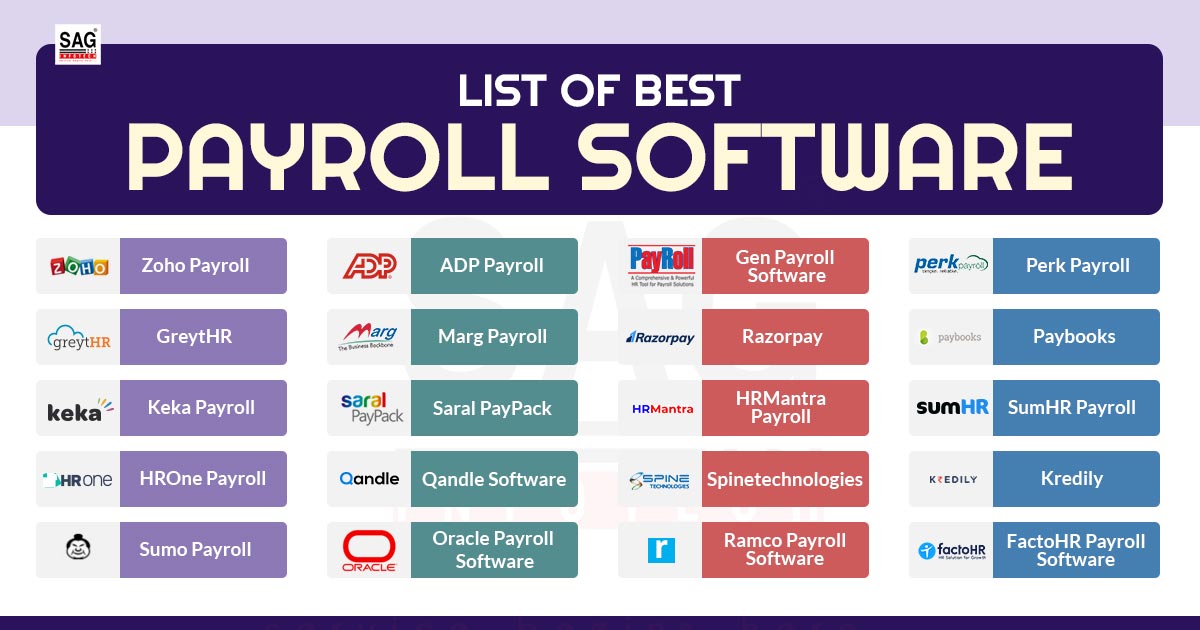With top-rated cloud payroll software for small businesses under 50 employees at the forefront, this paragraph opens a window to an amazing start and intrigue, inviting readers to embark on a storytelling journey filled with unexpected twists and insights.
In today’s fast-paced business environment, small businesses with under 50 employees are turning to cloud payroll software for its efficiency and convenience. This software streamlines payroll processes, offers automation features, and ensures data security.
Features of Top-Rated Cloud Payroll Software
Cloud payroll software offers a wide range of features that make it ideal for small businesses with under 50 employees. The automation capabilities, customizable options, and user-friendly interface of cloud payroll software provide significant benefits to streamline payroll processes efficiently.
Key Features of Cloud Payroll Software for Small Businesses:
- Automation of Payroll Processes: Cloud payroll software automates tasks such as calculating salaries, deductions, and taxes, reducing the risk of human error and saving time.
- Direct Deposit and Online Payment Options: Employees can receive their salaries through direct deposit, eliminating the need for paper checks and reducing administrative costs.
- Compliance with Tax Regulations: Cloud payroll software automatically updates tax rates and ensures compliance with changing tax laws, reducing the risk of penalties for small businesses.
Customizable Features in Cloud Payroll Software:
- Flexible Payroll Schedules: Small businesses can set up custom payroll schedules based on their specific needs, such as weekly, bi-weekly, or monthly payments.
- Employee Self-Service Portal: Cloud payroll software offers employees access to their pay stubs, tax forms, and benefits information, reducing the burden on HR departments.
- Integration with Accounting Software: Cloud payroll software can seamlessly integrate with accounting software to ensure accurate financial reporting and data synchronization.
Implementation and Integration of Cloud Payroll Software
Implementing cloud payroll software for a small business involves several key steps to ensure a smooth transition and efficient payroll management. It is essential to seamlessly integrate the software with existing HR systems and provide proper training to employees for effective use.
Steps for Implementing Cloud Payroll Software
- Assess Business Needs: Evaluate the specific payroll requirements of the business and select a cloud payroll software that aligns with these needs.
- Data Migration: Transfer all relevant payroll data to the cloud software, ensuring accuracy and completeness.
- Customization: Customize the software settings according to the business’s payroll processes and regulations.
- Testing: Conduct thorough testing of the software to identify and resolve any issues before going live.
- Training: Provide comprehensive training to HR and payroll staff on how to use the software effectively.
- Go-Live: Implement the cloud payroll software across the organization and monitor its performance closely.
Importance of Seamless Integration with HR Systems
Seamless integration with existing HR systems is crucial for efficient payroll management as it ensures smooth data flow and eliminates the need for manual data entry. Integration allows for real-time updates and accurate reporting, leading to improved overall payroll accuracy and compliance.
Best Practices for Training Employees
- Provide Hands-On Training: Offer practical training sessions where employees can interact with the software and perform tasks.
- Offer Ongoing Support: Provide continuous support and resources for employees to refer to when using the software.
- Create User Guides: Develop user-friendly guides and manuals to help employees navigate the software effectively.
- Encourage Feedback: Encourage employees to provide feedback on their experience with the software to identify areas for improvement.
Security and Compliance in Cloud Payroll Software
Security measures play a crucial role in ensuring the protection of sensitive employee data within cloud payroll software. Let’s explore the various security protocols and compliance standards that top-rated cloud payroll software adhere to for small businesses.
Security Measures in Cloud Payroll Software
Top-rated cloud payroll software incorporates robust security measures to safeguard sensitive employee data. Some common security features include:
- Encryption of Data: Employee information, such as social security numbers and salary details, is encrypted to prevent unauthorized access.
- Multi-Factor Authentication: Secure login processes, such as two-factor authentication, add an extra layer of protection against unauthorized logins.
- Regular Security Audits: Continuous monitoring and auditing of the system help identify and address any security vulnerabilities promptly.
- Role-Based Access Control: Restricting access to payroll information based on roles ensures that only authorized personnel can view or modify sensitive data.
Compliance Standards for Cloud Payroll Software
Cloud payroll software must adhere to various compliance standards to ensure data privacy and security for small businesses. Some of the key compliance standards include:
- GDPR (General Data Protection Regulation): Compliance with GDPR ensures that employee data is processed lawfully, fairly, and transparently.
- PCI DSS (Payment Card Industry Data Security Standard): Adhering to PCI DSS guidelines protects payment card information and enhances data security.
- SOC 1 and SOC 2: Service Organization Control (SOC) reports validate the security, availability, processing integrity, confidentiality, and privacy of the system.
- HIPAA (Health Insurance Portability and Accountability Act): Compliance with HIPAA is essential for payroll software handling health-related employee information.
Role of Updates and Backups in Data Security
Regular updates and backups are vital components in ensuring data security within cloud payroll software. Here’s how these practices contribute to safeguarding sensitive information:
- Updates: Regular software updates patch security vulnerabilities and ensure that the system is equipped with the latest security features to protect against evolving threats.
- Backups: Scheduled backups of payroll data help prevent data loss due to system failures, cyberattacks, or accidental deletion, ensuring data can be restored promptly in case of emergencies.
Final Review
From its key features to implementation and security measures, top-rated cloud payroll software for small businesses under 50 employees offers a comprehensive solution. Embracing this technology can lead to improved payroll management and data security for small businesses, paving the way for streamlined operations and growth.
